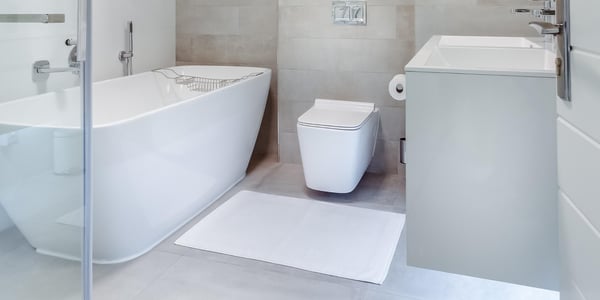In today's world, owning a car is often necessary for most individuals and families. However, the...


In today's world, owning a car is often necessary for most individuals and families. However, the...

In partnerships, setting goals can be a powerful tool to strengthen your bond and create a more...

Many of the injuries that occur every day happen in the home. Of these, a large portion occurs in...

When we think of air pollution, the images of smog-covered skylines and factory chimneys spewing...
Moving in With the Kids: Considering a Multigenerational Household
The concept of multigenerational households is making a strong comeback, with more families seeing the value of living under one roof. Sharing a home with older loved ones can offer opportunities for closer relationships, reduced living expenses, and personalized caregiving. However, this arrangement also comes with its own set of challenges that require careful thought and preparation.
Before deciding to bring generations together, families should assess whether their home, finances, and dynamics can support such a transition. For some, it’s a rewarding way to provide care while strengthening family ties. For others, it might create unexpected stress. This guide will help families weigh the pros and cons to determine if multigenerational living is the right choice for them.
The Multigenerational Option
Many factors must be examined before adding older adults to a household. While it may seem like an obvious choice for some families, such a decision requires careful thought and planning. The idea of bringing generations together can be motivated by a desire to strengthen family bonds, provide better caregiving, or reduce costs. However, jumping into this arrangement without considering the potential challenges can lead to significant difficulties down the line.
Cost
Caring for older loved ones in their adult children's homes appears to cost less than most other options. However, it is best to expect some higher costs, such as groceries and utilities. If elderly parents have special needs their adult children cannot provide, outside paid caregivers may need to visit the home. Also, there must be agreement on what, if any, household or other costs will be paid by the older loved ones.
Physical Space
It is often the case that the adult children's current home setup needs to be changed to accommodate older adults. Adaptive equipment, like grab bars or shower chairs, may need to be added.
On a larger scale, It may be necessary to build an addition or remodel the home to add space. In some communities, the "backyard bungalow" concept is growing. These smaller square footage outbuildings allow older adults to live in a separate structure while being close to family caregivers.
Homebuilders are also offering "multigenerational homes." These are built with independent private living spaces along with common areas. The private areas may include separate kitchens and entrances. In some families, selling both the parent's and adult children's current homes serves as a means to finance the single multigenerational home.
Caregiving
A big driver in forming a multigenerational household with older adults is the perception that family can deliver better caregiving. The advantages are that families know their elders better than the staff at a senior living facility ever could. This arrangement also eliminates the anxiety families sometimes feel worried about a frail loved one's welfare.
There can be many downsides, as well.
Families often lack the in-depth knowledge and skills needed to care for older adults. My mom lacked the knowledge about turning a bedridden person over several times per day to avoid bedsores. This would have been second nature for a trained, skilled nursing staff but instead resulted in a painful and expensive hospital stay for Aunt Lil.
Dementia care falls into its own challenging category. It's not uncommon for people living with dementia to wander away from home, thereby endangering their lives. Dedicated memory care facilities have trained staff and an environment designed to keep residents safe and calm. A multigenerational home is frequently less secure despite the best efforts of the family.
Then, there is the stress on the family caregivers. For an older adult with fewer health issues, the caregiver's responsibilities might be minimal. However, for those requiring more attention, the pressure on caregivers can become overwhelming. Unlike senior care facility professionals, family members don't punch out and relax after an 8-hour shift. The family is on duty 24/7.
Analyzing All the Options
Families and their older loved ones need to answer difficult questions before committing to the multigenerational alternative.
If discussing these and other relevant questions indicates that the multigenerational household doesn't make sense, other options must be considered.
For example, is it possible for an older adult to continue living at home with support such as visiting nurses and Meals on Wheels? While this idea may have been initially discarded, it may need to be reexamined. More services than ever are being provided to help seniors stay in their homes as long as they are safe and healthy.
Assisted living, memory care, or skilled nursing care options may also be reconsidered. Depending on a loved one's specific needs, these alternatives, which seemed too expensive at first, may now seem more reasonable.
Making the Move
After careful analysis, forming a multigenerational household may be the best option for some families. These living situations represent a growing trend. A Pew Research Center study found that in 1995, "7% of adults living in someone else's household are parents of the household head." By 2017, the percentage had increased to 14%.
As in my own experience, a multigenerational household has its ups and downs. Despite the stresses, I gained a lot. However, for other families, it could be a profoundly poor choice. The only way to decide correctly is to answer all the questions courageously.
Click here or the button below to apply online for a Dort Financial Credit Union HELOC!
Living50+